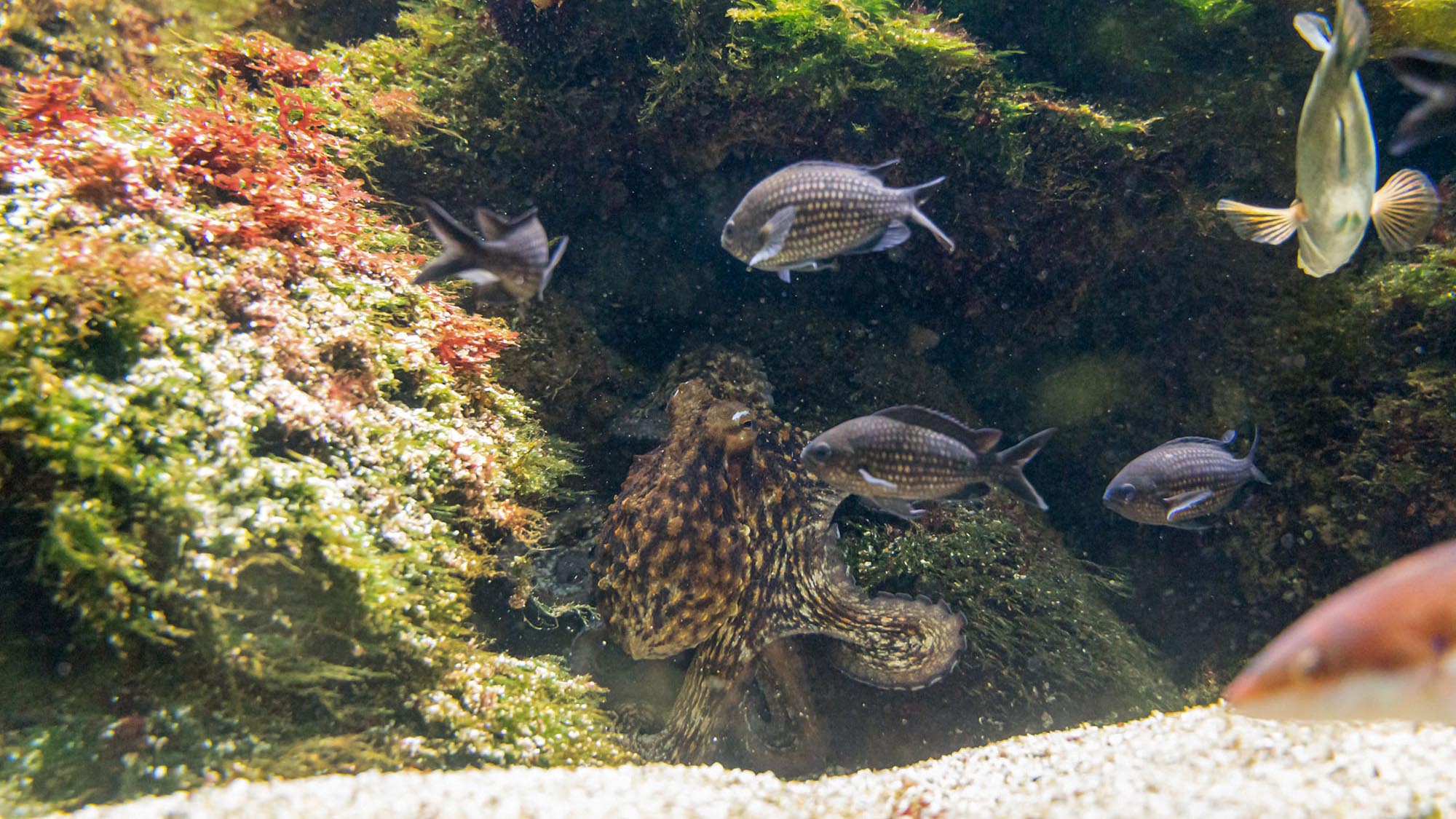This octopus is living life large after the zoo where it lives made its home 10 times bigger and added caves in which it can hide.
The footage shows the octopus in its new environment, which it is sharing with fish species and other Mediterranean invertebrates.
The images were shared online by the Basel Zoo in Switzerland. They said in a statement obtained by Newsflash: “The zoo’s common octopus (Octopus vulgaris) now lives in display tank 11 with some fish species and other Mediterranean invertebrates.
“The octopus has ten times the amount of space it did before and has lots of caves in the rocks that it can hide away in.”
The zoo added: “An octopus gives away their hiding spot with the ‘toys’ they collect over the course of their lifetime.
“Piece by piece, they build a mountain of mussel and snail shells in front of their cave. The longer an octopus lives in a particular cave, the bigger the pile becomes – and the easier it is to find their hiding place.”
They said that they had taken advantage of the coronavirus pandemic to do some work on the octopus’ home. They said: “Basel Zoo’s vivarium has been home to common octopuses since 2009. Due to their relatively short life expectancy, there have been times when the zoo has not had any of these octopuses and has had to source new ones.
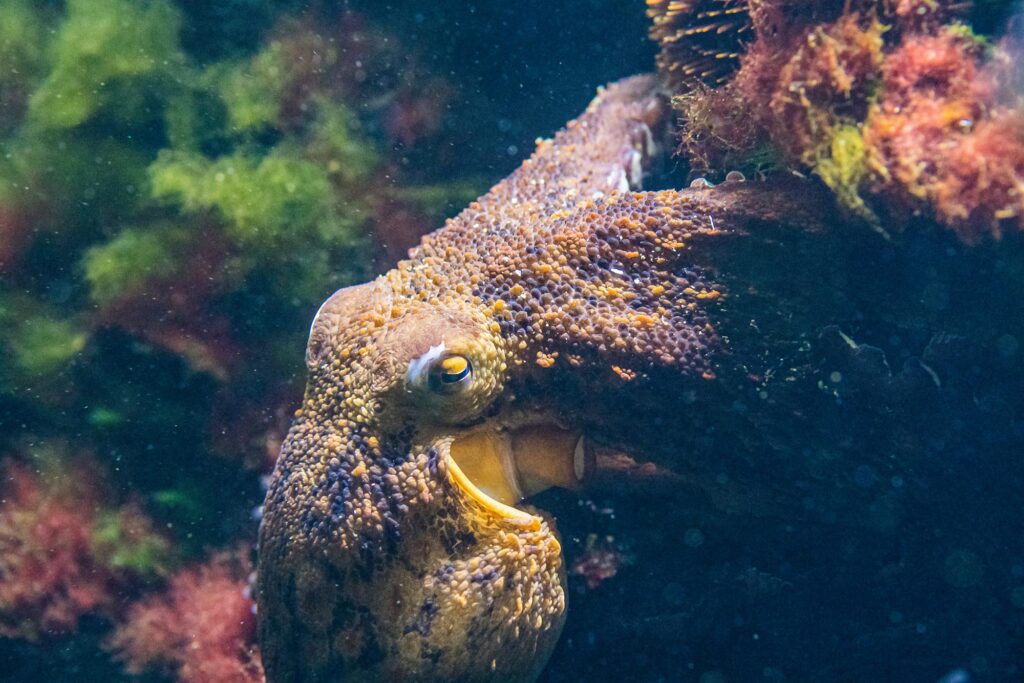
(Zoo Basel/Newsflash)
“With the pandemic measures, it is not always easy to find new octopuses. The zoo has used this time to ‘octopus-proof’ display tank 11.”
The zoo said that octopuses are often nocturnal hunters, opting to sleep in their caves during the day. The zoo said: “Octopuses often sleep in their caves during the day. Only when the sun begins to set do they slip out of their caves and go on the hunt for prey such as crabs, snails, mussels and small fish.”
The zoo explained that there is no doubt a connection between how intelligent octopuses are and their hunting habits. The zoo said: “This predatory diet is probably why octopuses are highly intelligent. Preying on well-defended crabs without hurting themselves on their claws requires more brainpower than grazing in algal meadows. Octopuses are benthic animals, meaning they mostly move around on the seabed or along the rocks on the shore, but they can also swim in open water using a backward thrusting motion.”
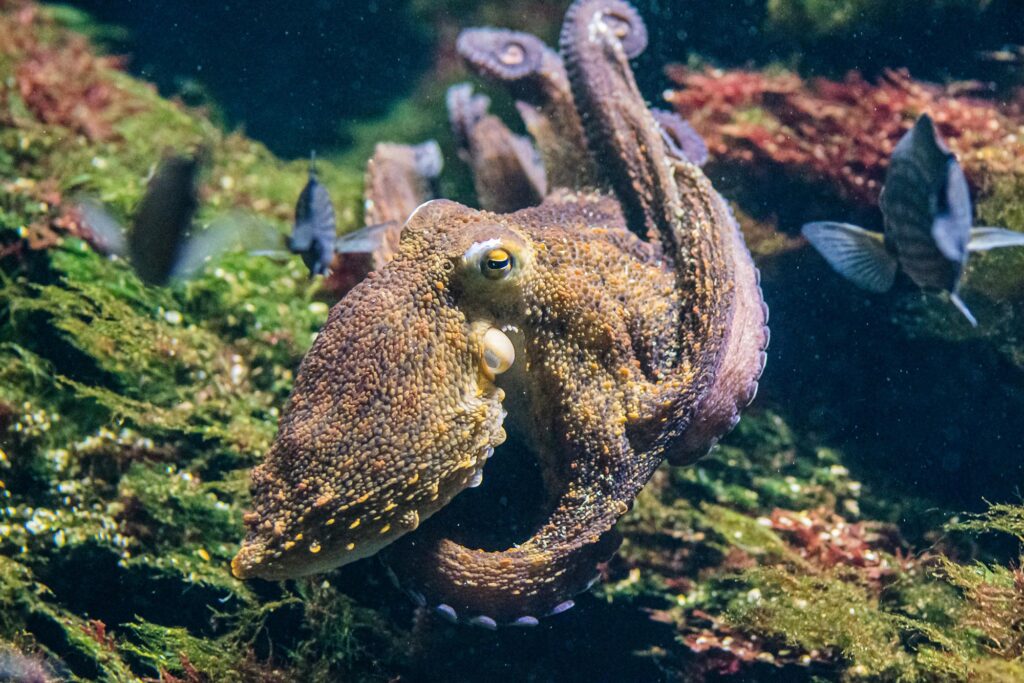
(Zoo Basel/Newsflash)
They said that octopuses are even occasionally spotted on land, saying: “On rocky coasts, they can even leave the water for short periods of time and cover short distances on land. They go in search of rock pools, as the animals trapped there make for easy prey.”
The zoo added that this could be a cause for concern, especially if a particularly intelligent octopus were to escape from its aquarium. The zoo said: “This behaviour must also be considered when keeping octopuses: having an ‘octopus-proof’ tank opening is essential. If an octopus were to escape from its aquarium, the animal could get itself stuck on land or find another tank in the vivarium to sneak into.
“Overhangs on the opening of the tank and artificial grass mats should prevent this from happening. All water pipes also have to be secured, as octopuses can contort themselves very easily and fit into tiny crevices and slits.”
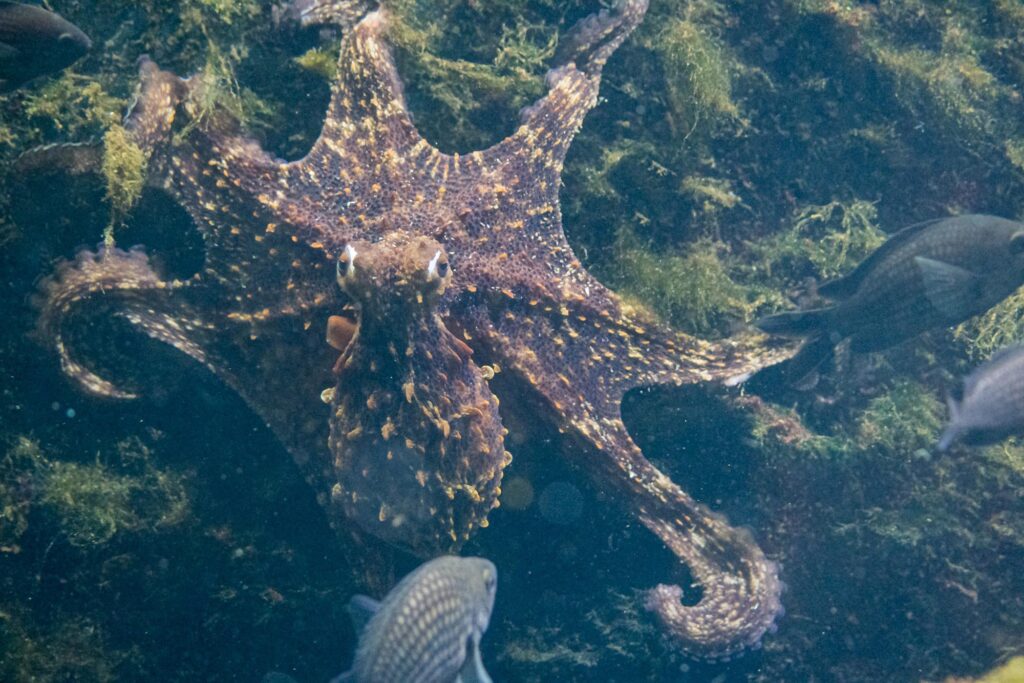
The common octopus that now lives in display tank 11 with some fish species and other Mediterranean invertebrates at the Basel Zoo in Switzerland.
(Zoo Basel/Newsflash)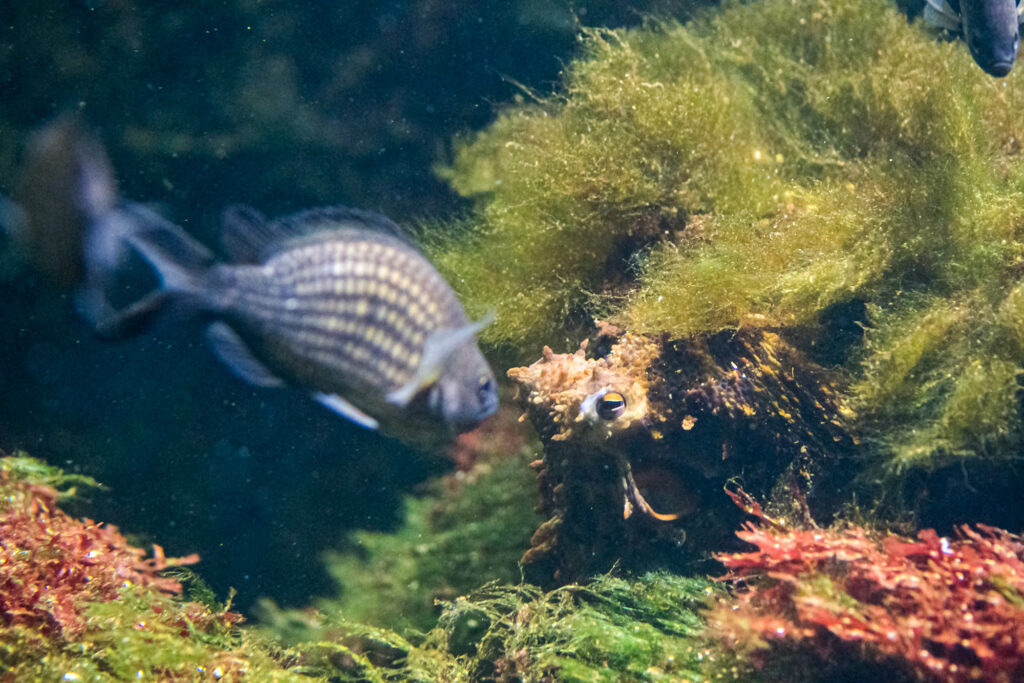
The common octopus that now lives in display tank 11 with some fish species and other Mediterranean invertebrates at the Basel Zoo in Switzerland.
(Zoo Basel/Newsflash)
To find out more about the author, editor or agency that supplied this story – please click below.
Story By: Joseph Golder, Sub-Editor: James King, Agency: Newsflash
The Ananova page is created by and dedicated to professional, independent freelance journalists. It is a place for us to showcase our work. When our news is sold to our media partners, we will include the link here.

